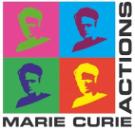You are here
Marie Curie Project on Sports Head Injuries - Modelling Skull Fracture in Accident Reconstruction
Modelling Skull Fracture in Accident Reconstruction
Level: PhD, Funded €40-70k, 3 years

This PhD project is part of a Marie-Curie Innovation Training Network, HEADS (Head protection: a European training network for Advanced Designs in Safety). There are six partners, three industry (Charles Owen, UK; Lazer Sport, Belgium; and AGV, Italy) and three academic (University College Dublin, Ireland; KU Leuven, Belgium; KTH Stockholm, Sweden), who together, will host 13 PhDs. The advertised PhD position will be based at UCD, more specifically in the School of Mechanical & Materials Engineering, under the supervision of Dr. Aisling Ni Annaidh.
As part of the Marie Curie training programme, the candidate will spend a secondment period of 3 months based on site at Lazer Sport, Anterp, Belgium, and a second period of 3 months based in KU Leuven, Belgium.
About the Project
The scientific goal of HEADS is to improve the understanding of head impact injury and to design new helmet standard test methods that recognise the influence of rotational kinematics. This will lead to improved helmets and a reduction in the severity of injuries and the numbers of fatalities. This objective will be achieved through a combination of computational simulations of real-life accidents, experimental and computational investigation of injury thresholds, and design of new helmet certification tests.
The goal of this specific PhD project is the development of a biofidelic FE model that can accurately predict skull fracture in accident reconstruction. The candidate will develop an experimental protocol to measure the initiation and propagation of skull fracture and subsequently develop a suitable failure criterion for implementation in finite element simulations. Validation of the technique will be carried out using real-life accident reconstructions. Boundary conditions will be obtained from accident reconstruction data, and patient specific medical images will be segmented using Mimics® software. This model will then be incorporated into the UCD HEAD Model.
Position
The doctoral student is offered highly specialised doctoral training, making the candidate an expert in head impact biomechanics and helmet design technologies as well as being aware of commercialisable market opportunities. The doctoral candidate will work in world-class facilities with highly qualified experts, and will benefit from the training scheme developed based on the expertise of academic and industrial partners. This project will reach a new level of understanding of head injury and how head injury should be prevented, with directly applicable results to European industry. It will develop a well-networked group of young engineers and scientists into worldclass researchers and innovators with numerous career paths open to them, who will advance technology for the benefit of society and maintain Europe as a global leader in industrial development.
Candidate
Candidate must hold a Bachelor’s or Master’s in Mechanical, Materials, Biomedical Engineering or equivalent. Knowledge of computational modelling is considered a plus. The candidate should be able to display a strong aptitude and enthusiasm for Engineering Research at undergraduate or postgraduate level.
The candidate cannot have resided in Ireland for more than 12 months in the last 3 years prior to the start of the position.
Closing date - 1st April 2015. Please go to http://www.ucd.ie/eacollege/mme/postgraduateprogrammes/currentopportunit... for details on the application process.
- ghanley's blog
- Log in or register to post comments
- 2278 reads

Recent comments